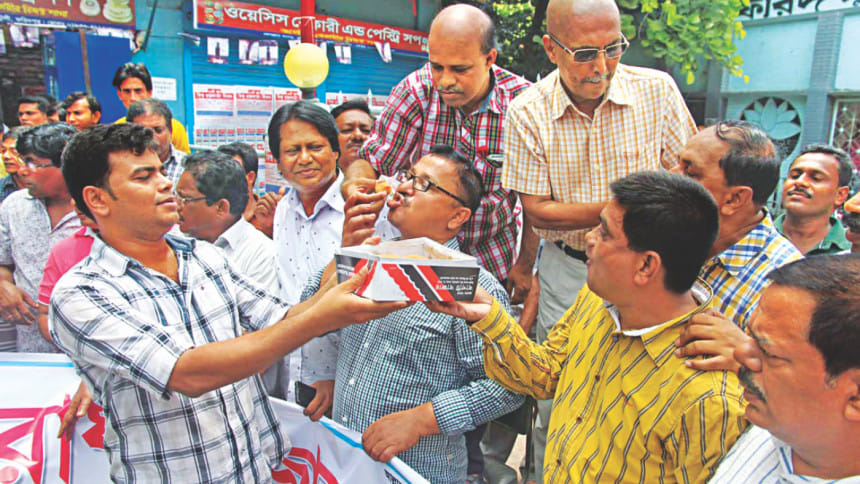Mixed reaction in Faridpur

The people of Faridpur yesterday expressed mixed reaction to the Supreme Court verdict on an appeal filed by war criminal Ali Ahsan Mohammad Mojaheed.
Ranjit Nath, son of late Ramesh Chandra Nath of the district's Rothkhola, expressed happiness after the SC upheld the tribunal's verdict.
The tribunal sentenced Mojaheed to five years' imprisonment in connection with confining Ranjit and torturing him at a Bihari camp.
But the people of Bokchar village in Mochhar union of the district did not feel the same way Ranjit did.
They were disheartened by the verdict as it commuted Mojaheed's death penalty to life term imprisonment for killing people in their village.
On May 13, 1971, Al-Badr men killed at least nine people of the village and raped a number of women.
Gopal Saha, cousin of Jharna Saha who was killed after rape by Al-Badr men, said, "This is very unfortunate. Why was the punishment changed and reduced? We are surprised and shocked by this verdict."
Chitta Saha alias Shakti, a prosecution witness from the village, expressed his dissatisfaction and urged the government to file an appeal again in this connection.
Meanwhile, the district unit Awami League brought out a victory procession yesterday and distributed sweets among people and burned effigies of Mojaheed.
Shamsul Islam, former ameer of Faridpur Jamaat-e-Islami, claimed that Mojaheed was not a war criminal.
"Only the Pakistani occupation forces can be declared as war criminals in this country," he said.
Fatima Lubna, wife of Mojaheed's younger brother Ali Ashraf, said, “I do not want to speak against the government. What can we do except shed our tears.”
“The events took place 44 years ago. How old Mr Mojaheed could be at that time?” said Lubna, now living in Mojaheed's ancestral home in Faridpur town.
Born in 1948, Mojaheed joined the Islami Chhatra Sangha, the then student front of Jamaat-e-Islami, in 1965 as a student of Faridpur Rajendra College.
On October 1971, he became president of East Pakistan unit of Chhatra Sangha and thus the ex-officio chief of Al-Badr.

 For all latest news, follow The Daily Star's Google News channel.
For all latest news, follow The Daily Star's Google News channel. 



Comments